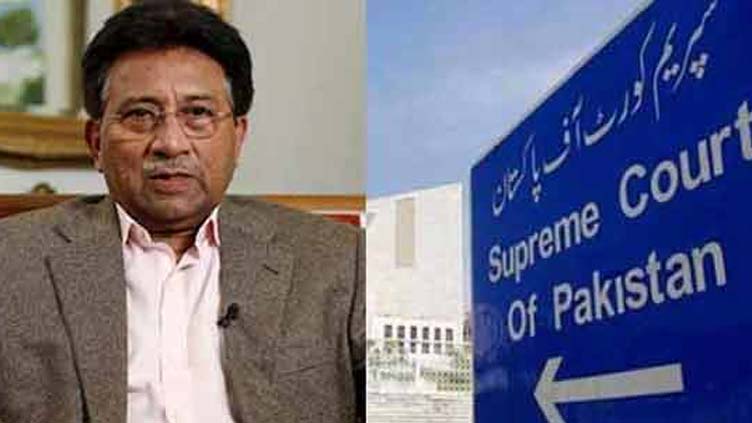LHC violated Constitution, rules SC in Musharraf high treason case

Pakistan
Says the high court did no enjoy the authority to rule on constitution of the special court
ISLAMABAD (Dunya News) – The Supreme Court has declared the Lahore High Court’s (LHC) Jan 2020 order annulling the death sentence awarded by the special court to former president Pervez Musharraf in the high treason case unconstitutional.
The apex court has issued the detailed verdict, saying the high court not only violated Constitution and law but also intervened in appellate jurisdiction of the top court.
“The high court should have remained within the confines of the dispute brought before it and decided the same in accordance with the law and the Constitution,” Justice Syed Mansoor Ali Shah, who was part of the four-member SC bench hearing the petition, observed in the ruling.
On Jan 10, the apex court upheld the death sentence handed down to the late Pervez Musharraf, who was also a military ruler, by a special court.
A four-member bench headed by Chief Justice of Pakistan Qazi Faez Isa and comprising Mansoor Ali Shah, Justice Ameenuddin Khan and Justice Athar Minallah had issued the ruling.
In the detailed judgment, the apex court ruled that LHC had not enjoyed any jurisdiction to hear a case regarding constitution of the special court.
The special court was established in Islamabad and it did not fall under the domain of the LHC, it said, adding that authorized forum was bypassed while filing the petition in the high court.
By issuing the ruling, the LHC had unlawfully crossed into jurisdiction exclusively vested in the top court, Justice Mansoor Ali Shah remarked, adding that the petitioner was granted relief, which was not even sought by petitioner in the plea.
THE DEATH SENTENCE
In December 2019, a special court sentenced Musharraf to death after finding him guilty of high treason for subverting the constitution in 2007. He took power in a 1999 coup.
The court directed law enforcers to apprehend Musharraf, who was under medical treatment in Dubai at that time, to ensure the death sentence is carried out.
The three-judge panel ruled that the corpse of Musharraf should hang for three days if the general dies before his execution.
It may be recalled that in November 2007, Musharraf suspended the constitution and imposed emergency rule, prompting protests. He resigned in 2008 to avoid the threat of impeachment. When Nawaz Sharif, whom Musharraf deposed in 1999, was re-elected prime minister in 2013, he initiated a treason trial against Musharraf and in 2014 he was charged with high treason.


